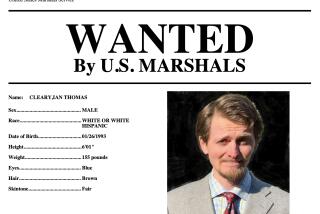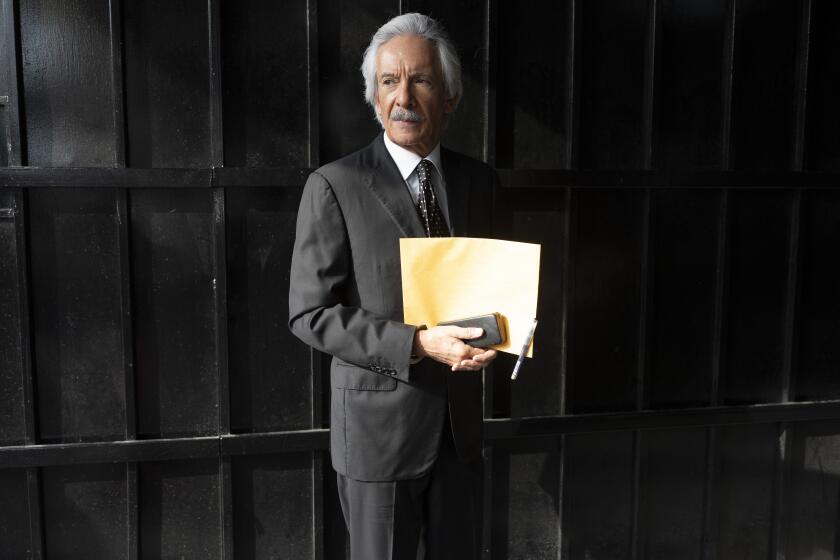ABA Code Targets Corporate Crimes
The near-sacred duty of attorneys to guard their clients’ secrets became less absolute Tuesday when the American Bar Assn. changed its ethics code to allow lawyers to report wrongdoing to corporate boards, fraud victims and even government authorities.
The move was a response to the Enron Corp. debacle and other corporate scandals in which lawyers came under attack for their actions or their silence. The ABA also was motivated by its desire to head off a more sweeping measure being considered by the Securities and Exchange Commission.
The changes reflect a philosophical shift in the definition of a lawyer’s duties, but observers said it was uncertain how much direct effect they would have on the practice of law.
For one thing, though the amendments give lawyers broader latitude to report wrongdoing, they don’t require them to do so. And in California -- where strict attorney-client confidentiality is in the state’s Business and Professions Code -- the effect could be minimal.
Still, some observers said the ABA vote was momentous. Stephen Gillers, a professor of legal ethics at New York University, called it a “tectonic shift” from an almost completely client-centered view of the law to a “recognition that the interests of others who might be the victims of client wrongdoing must also be weighed in the balance.”
The ABA “to its credit recognized that lawyers are in a public profession and have obligations to other people,” Gillers said.
The amendments were adopted by the ABA House of Delegates in votes Monday and Tuesday at the group’s annual meeting in San Francisco.
Under one amendment, lawyers whose clients are engaged in serious acts of fraud now may warn potential victims without violating their ethical duty to protect client confidences.
Under another, lawyers for business concerns or nonprofit groups who become aware of law violations by employees or executives will be obliged to report them to boards of directors.
If directors don’t take satisfactory action, the lawyers can report violations to regulatory or law enforcement agencies.
Some lawyers said the amendments went too far. Stephen Neal, chief executive of law firm Cooley Godward firm in Palo Alto, called it a “pretty dangerous step” to encourage lawyers to report client wrongdoing to authorities.
Diane Karpman, a Los Angeles legal ethicist who represents lawyers in malpractice cases, said the changes would undermine lawyers’ ability to talk clients out of breaking the law.
“Clients have always believed they could tell their lawyers anything, and lawyers’ lips are sealed,” Karpman said. Clients engage lawyers in “what if” conversations, she said, and lawyers often are able to dissuade the client “from doing an evil deed.”
“If the client thinks if he goes to the lawyer the lawyer is going to blow the whistle, it is a seismic change in our legal community,” she said. “It’s going to cut off the client’s right to get that cautionary advice not to do something.”
Some experts acknowledged that the effect could be more symbolic than concrete. Attorney conduct is regulated by state bar associations, and it was unclear how many would amend their own ethical codes.
In a few states, codes of conduct already permit lawyers to report criminal conduct. And in most states, attorneys already may warn potential fraud victims if they learn their clients used their legal work in conceiving the fraud.
Jack Coffee, a Columbia University law professor and expert in securities law, said the ABA amendments were “modest changes in the right direction, under the shadow of far more sweeping change that the SEC is considering.”
In January, the SEC adopted a rule requiring lawyers who practice before the agency to report illegal activities to corporate boards. The amendment approved Tuesday by the ABA is broader in that it covers lawyers who represent private as well as publicly traded companies and also nonprofit groups such as labor unions and charities.
But the SEC is considering a so-called noisy withdrawal rule that would require a lawyer who learns that a client is engaged in illegal acts to resign as the client’s attorney. That would be a sign for the SEC to investigate.
“Obviously, this has real teeth, and the bar is scared to death about it,” Coffee said.
In the end, said Michael Shepard, a white-collar defense lawyer with Heller Ehrman White & McAuliffe in San Francisco, amendments to the ABA ethical code could in fact change the way lawyers behave -- because lawyers who don’t report wrongdoing could wind up as defendants in shareholder suits.
The new language about being able to breach confidentiality, he said, becomes “You really better.”
More to Read
Start your day right
Sign up for Essential California for news, features and recommendations from the L.A. Times and beyond in your inbox six days a week.
You may occasionally receive promotional content from the Los Angeles Times.






